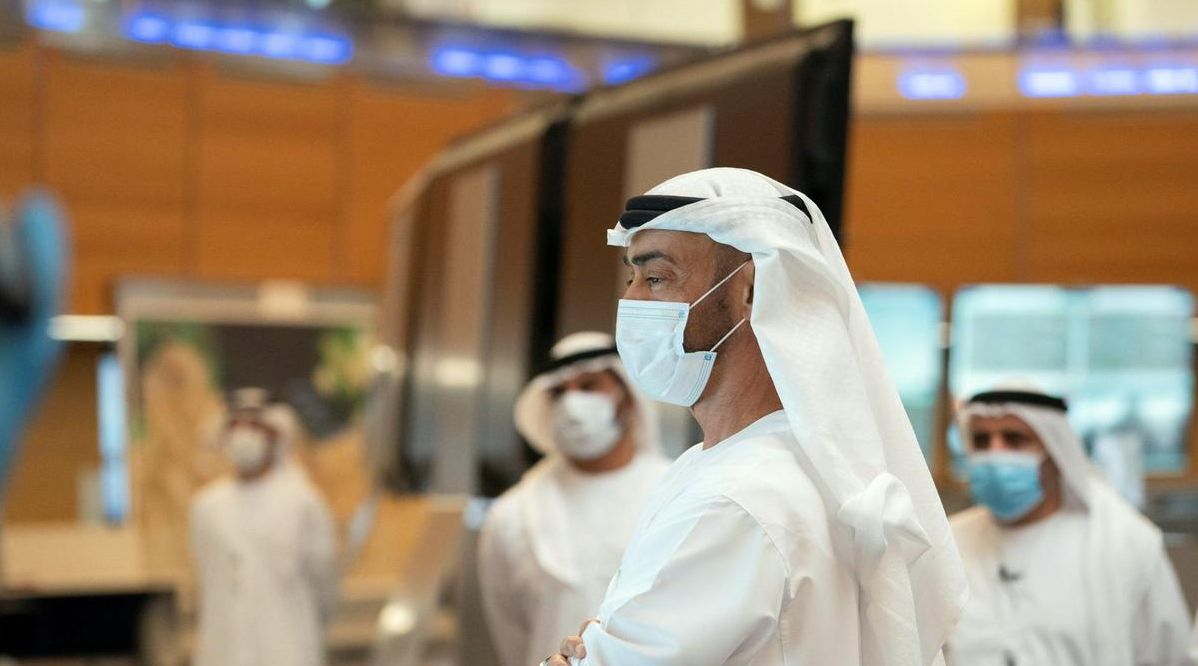The Emirates Food Security Council held its third virtual meeting recently during when the members held crucial discussions on the formation of key committees and the management of the strategic stocks of food in the country among other issues. The meeting was chaired by Mariam Almheiri, Minister of State for Food and Water Security, along with council members representing the ministries of Economy, Health and Prevention, Education, Climate Change and Environment, and Energy and Infrastructure, as well as the National Emergency, Crisis, and Disasters Management Authority (NCEMA).
During the meeting, the members reviewed the latest trends related to food security in the UAE and assessed the suggestions made by the council in the first two meetings. The council also hailed the efforts of the Abu Dhabi Food Security Taskforce and the Dubai Food Security Committee in managing food supplies across the country in the wake of the global pandemic crisis.
In addition to these council members, representatives of the Abu Dhabi Agriculture and Food Safety Authority, Dubai Municipality, Sharjah Health Authority, Fujairah Municipality, Umm Al Quwain Municipality, Environment Protection and Development Authority of Ras Al Khaimah, and Municipality and Planning Department in Ajman, also participated in the meeting.
In his remarks over the meeting, Almheiri stated that the UAE leadership has always worked in providing continuous support to enhance the food security system of the country. He further stated that ensuring food security received a significant focus in the country's response during the Coronavirus outbreak, adding that adequate steps were taken to secure food supply chains in the UAE and around the world.
"The COVID-19 crisis has demonstrated our approach, which relies on collaboration and partnerships with relevant entities in the UAE. It has succeeded in ensuring that all food items are available. This third meeting of Emirates Food Security Council has enabled us to build on these successes and enhance our ability to secure our food needs both in the immediate term and for the future," said Mariam Almheiri.
He later quoted Sheikh Mohammed bin Rashid Al Maktoum, Vice President, Prime Minister and Ruler of Dubai, saying: "Anyone who thinks that the world after COVID-19 will be the same as the one before it is mistaken." In view of this foresight, Almheiri noted that there is a need for a new stage in the UAE's mission to ensure our food security in the future with the help of all possible means and capabilities available in the process.
Notedly, the Emirates Food Security Council aims to oversee the action plan seeking to fulfill five strategic objectives of the UAE's National Food Security Strategy, which are:
a) Facilitating global food trade and diversifying import sources
b) Developing sustainable, tech-enabled local production along the entire value chain
c) Limiting food loss and waste
d) Ensuring food safety and improving nutrition systems
e) Building up the UAE’s ability to face food security risks and crises
Based on the directives of the UAE leadership, the Abu Dhabi food security team has also formulated various strategic goals and an implementation action plan towards greater food security in the country. The action plan consists of a set of initiatives aiming to ensure the sustainability of the supply of food commodities and diversification of the sources of imported food products. In addition, it will support all the stakeholders participating in the food chain and encourage local production.
Responding to the developments, Omar Bu Shahab, Chairman of the Dubai Food Security Committee, stated that the UAE government is working on proactive plans and mechanisms that will contribute to the diversification of food supply sources and their sustainability.
"Despite the pandemic’s challenges, the national food security system successfully demonstrated its readiness to manage and secure the necessary food supply across the country. This is a result of concerted efforts undertaken by the parties responsible for food security, and of our national leadership’s continuous support," Omar Bu Shahab added, as reported by the state news agency WAM.
Meanwhile, during the third meeting of the Council, key committees were formed which will be implementing the activities specified by the Council and plans of the National Food Security Strategy. Among the various committees formed, the National Committee for Reducing Food Waste and Loss is a key initiative formed to implement plans to reduce food waste by 15 percent in the country by the end of 2021. It is chaired by the Dubai Municipality. Furthermore, the National Committee for Developing Local Production and Technology was formed under the chairmanship of the Abu Dhabi Agriculture and Food Safety Authority. It has been launched with the aim of initiating measures to evaluate and quantify the progress made in tech-enabled agriculture by 30 percent by the end of 2021. It will also be reviewing the developments in the production of strategic food items by 15 percent by the end of 2021.
The Advisory Committee for Food Security has been formed to provide neutral and scientific advice and remarks on draft laws and national policies related to the sector. It will also carry out research and studies to identify developments and international threats in the area of food security.
Additionally, council members also held discussions on various other issues of general interests during the meeting which included the work of the teams focusing on the National Food Security Strategy, assignment of council members to provide a list of new legislation to be drafted and preparation of a list of experts for membership of the advisory committee. The availability of production capacity estimates for 2020 was also reviewed during the third Emirates Council for Food Security meeting.
 AR
AR UR
UR
